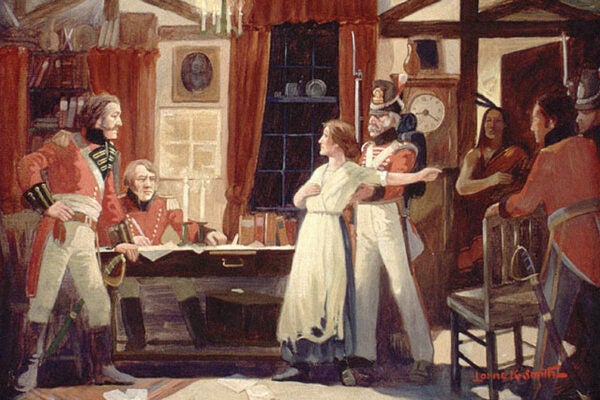From the time Thomas Jefferson wrote that “all men are created equal,” many people have noted his hypocrisy as a slave owner. As Carmel Lambert explores, a half-century later, the tension between the American founders’ words and deeds was at the heart of the Black American project of colonizing Liberia.
Since the beginning of the nineteenth century, Lambert writes, “free” Black Americans—whose freedom was always constrained by the nation’s refusal to treat them as equal citizens—had argued in speeches and pamphlets for their inclusion in the Declaration of Independence’s promise of liberty and equality. Most of them sought the immediate end to slavery and the right of Black people to the pursuit of happiness on American soil.
But some preferred to leave a country that they suspected would never grant them equal rights. These men and women made an alliance of convenience with the American Colonization Society (ACS), an all-white organization that sought to achieve a nation for whites only by sending Black Americans to form a colony in West Africa. Despite seeing Black people as inherently inferior, they envisioned the colonists bringing Christianity and “civilization” along American lines to Africa.
Lambert writes that one of the first colonists to take them up on this was Hilary Teage. The son of a Baptist preacher, born free after his father bought his own way out of slavery, Teage was one of thirty-three “free people of colour” who sailed from Richmond, Virginia, to West Africa in 1821 to colonize a new land.
Teage, who went on to write Liberia’s Declaration of Independence and help shape its political system, became known as Liberia’s Jefferson. And, indeed, he embraced Jefferson’s vision of an agrarian society carved from a savage land. Speaking in 1846, on the twenty-fifth anniversary of Liberia’s founding and the year before it achieved formal independence, Teage described early days of working to tame an “ancient wilderness” in “the name of virtue, humanity and religion” and fighting off blood-drinking “pagans.”
By this time, Lambert writes, the nation was home to more than 3,000 settlers from America—many of whom, unlike Teage, had been formerly enslaved and were manumitted only under the condition that they leave the US. Its other inhabitants included about 300 Africans freed from slave ships in Africa; about 500 West Africans, who had assimilated into the new nation; and another 10,000 who lived in their own societies on land claimed by the nation.
In his writings, Teage expressed admiration for Africa’s past civilizations and called for European colonists to relinquish Africa to Black control. But in Liberia, local people were allowed to become citizens only if they abandoned their previous religions and cultural practices in favor of American-style “civilized life.”
That tension has continued to affect the politics of Liberia ever since.
Teaching Tips
- Read a collection of speeches, including Hilary Teage’s December 1846 oration on the occasion of the twenty-fifth anniversary of Liberia’s founding in Calumny refuted by facts from Liberia, shared via JSTOR by Johns Hopkins University in the James Birney Collection of Anti-Slavery Pamphlets.
- The 1832 Letter to the Committee of the London Anti-Slavery Society claimed Liberia, and in particular Teage, funded the colony with profits from the slave trade in Sierra Leone.
- Read “The Latest from Liberia” in the June 1825 issue of The African Repository and Colonial Journal.
- Read “Colonization Efforts and Results,” a report from the African Colonization Society, in the August 1836 issue of The African Repository and Colonial Journal.







